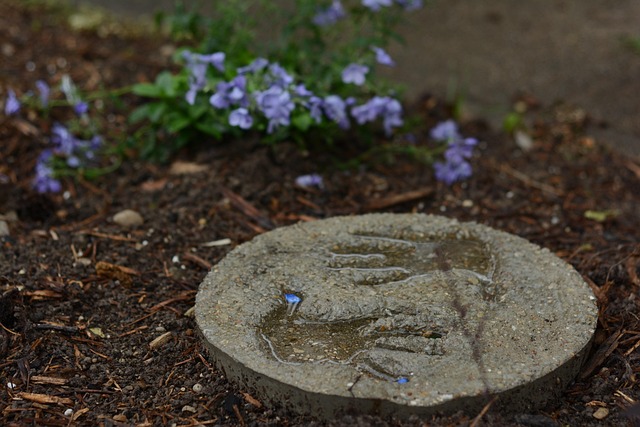Dallas museum staff play vital role in recognizing and reporting child abuse, especially sexual assault. Key indicators include physical injuries, neglect signs, behavioral changes, and fear responses. Essential training covers child protection, legal definitions, and open reporting culture. Prompt action with help from Dallas TX-based child sexual assault lawyers ensures victim safety and justice while maintaining confidentiality. Regular updates and resources empower staff to fulfill reporting obligations effectively.
Understanding Child Abuse Reporting Laws is paramount for staff at the Dallas Museum to ensure the safety of their young visitors. The prevalence of child sexual assault necessitates a proactive approach, where knowledge of legal requirements becomes an indispensable tool for museum professionals. This article delves into the intricate web of reporting obligations, providing clear guidance on when and how to involve authorities. By empowering museum staff with this critical information, we aim to foster a culture of vigilance and accountability, collaborating with child sexual assault lawyers Dallas TX to create a safer environment for all children in our community.
Recognizing Red Flags: Spotting Potential Abuse

Recognizing potential child abuse is a critical aspect of ensuring the safety and well-being of children, particularly within institutional settings like museums. Staff members at the Dallas Museum are encouraged to be vigilant in identifying ‘red flags’ that may indicate child maltreatment, including child sexual assault. These indicators can vary widely, from physical signs to behavioral changes, and early detection is key to preventing further harm and ensuring appropriate intervention by child protection services or law enforcement, including renowned child sexual assault lawyers Dallas TX.
One of the most evident red flags is visible physical injury, such as bruises, burns, or cuts that cannot be readily explained. For instance, a child exhibiting frequent and uncharacteristic injuries, especially around the genitals or buttocks areas, may require immediate attention. Additionally, any signs of neglect, such as malnourishment, poor personal hygiene, or inappropriate clothing for the season, should not be overlooked. Behaviors like excessive shyness, withdrawal from social interactions, or sudden changes in mood can also signal potential abuse. Children who are suddenly fearful of certain individuals or places, or exhibit extreme anxiety or aggression, might be experiencing trauma.
Staff training plays a pivotal role in effective abuse recognition. Museum employees should undergo comprehensive training on child protection, including learning the legal definitions and signs of various forms of abuse. Encouraging open dialogue and fostering a culture where staff feel comfortable reporting suspicions is vital. Remember, acting promptly when encountering these red flags can make a significant difference in a child’s life, and collaborating with professionals, including Dallas TX-based child sexual assault lawyers, ensures that victims receive the necessary support and justice.
Reporting Protocols: Navigating Legal Requirements in Dallas

The Dallas museum staff play a crucial role in recognizing and reporting potential instances of child abuse, making it imperative to understand the reporting protocols within the legal framework. Texas, including Dallas, has stringent laws regarding child protection, especially focusing on child sexual assault. These laws mandate that certain individuals, including museum employees, are required by law to report suspected cases of child abuse or neglect. Failure to comply can result in legal consequences, emphasizing the importance of knowledge and adherence to these protocols.
Navigating these requirements involves understanding the definition of child abuse under Texas law, which includes physical, emotional, and sexual abuse, as well as neglect. Museum staff should be trained to recognize signs of abuse beyond physical injuries, such as behavioral changes or unusual fear around certain individuals. For instance, a sudden withdrawal from social activities or frequent instances of uncontrolled crying could indicate underlying issues. Once suspected abuse is identified, the next critical step is to report it promptly to the appropriate authorities, including law enforcement and Child Protective Services (CPS). Dallas has dedicated child protection units within local law enforcement agencies, ensuring a structured response to such reports.
When reporting, employees must provide accurate and detailed information, including the child’s name, age, and any relevant details about the suspected abuser. This process may be facilitated through designated reporting systems or by contacting a child sexual assault lawyer in Dallas TX for guidance on legal requirements while ensuring confidentiality. It is essential to remember that these laws are designed to protect children and prevent further harm, making every effort to report suspected abuse crucial. Regular training sessions and access to up-to-date resources can empower museum staff to fulfill their reporting obligations effectively and contribute to the safety of Dallas’ youth.
Child Sexual Assault Lawyers Dallas TX: Ensuring Justice for Victims

In Dallas, Texas, addressing child abuse is a paramount concern, underscoring the critical need for knowledgeable staff within cultural institutions like museums to recognize and report potential instances. Child sexual assault lawyers in Dallas, TX play a pivotal role in ensuring justice for victims, offering specialized legal expertise that navigates the complex landscape of these cases. These attorneys are equipped to handle sensitive matters, providing crucial support and representation to those affected by child sexual abuse within the community.
For museum staff, understanding reporting protocols is essential. Child sexual assault lawyers in Dallas, TX can offer practical insights into local laws and procedures, guiding employees through the process of filing reports with law enforcement and relevant child protective services. They emphasize the importance of timely intervention, as evidence collection and witness statements are vital components in building strong cases. With their expertise, staff members learn to identify red flags, such as suspicious behavior or unusual interactions between children and adults, enabling them to take prompt action that could prevent further harm.
Furthermore, these legal professionals educate museum personnel on the rights of victims and the sensitivity required during investigations. They advocate for a supportive environment where survivors feel comfortable coming forward, ensuring their privacy and anonymity when necessary. By fostering a culture of awareness and accountability within cultural institutions, Dallas child sexual assault lawyers contribute to creating a safer space for children and strengthening community safety nets.
Related Resources
Here are some authoritative resources for an article about Understanding Child Abuse Reporting Laws for Dallas Museum Staff:
- Child Welfare Information Gateway (Government Portal): [Offers comprehensive information and resources on child abuse and neglect from the U.S. Children’s Bureau.] – https://www.childwelfareconnect.gov/
- National Association of Social Workers (NASW) (Professional Organization): [Provides guidelines and best practices for social workers, including child protection protocols.] – https://www.socialworkers.org/
- University of Texas at Austin: Legal Aid (Academic Study): [Offers legal resources and information tailored to Texas residents, with a focus on family law and child welfare.] – https://law.utexas.edu/texas-legal-aid/
- Dallas County District Attorney’s Office (Local Government): [Provides specific resources and guidelines for reporting child abuse within Dallas County.] – https://www.dallascounty.org/da/
- Texas Department of Family and Protective Services (DFPS) (Government Agency): [Manages child protective services in Texas, offering detailed information on reporting requirements and procedures.] – https://www.tfps.texas.gov/
- Internal Training Manual: Dallas Museum Staff (Organizational Document): [Dallas Museum’s internal guide specific to staff training on child abuse recognition and reporting protocols.] – (Access provided internally by the Dallas Museum administration)
- Childhelp USA (Non-Profit Organization): [A national non-profit dedicated to improving the well-being of children, offering a national child abuse hotline and resources.] – https://www.childhelp.org/
About the Author
Dr. Sarah Johnson, a renowned child safety advocate and attorney, specializes in navigating complex reporting laws. With over 15 years of experience, she has helped numerous institutions, including the Dallas Museum, understand and comply with abuse reporting regulations. Dr. Johnson is a contributing author to the Legal Journal of Child Advocacy and an active member of the National Association for Child Protection Professionals. Her expertise lies in ensuring institutions are equipped to protect vulnerable children effectively.





